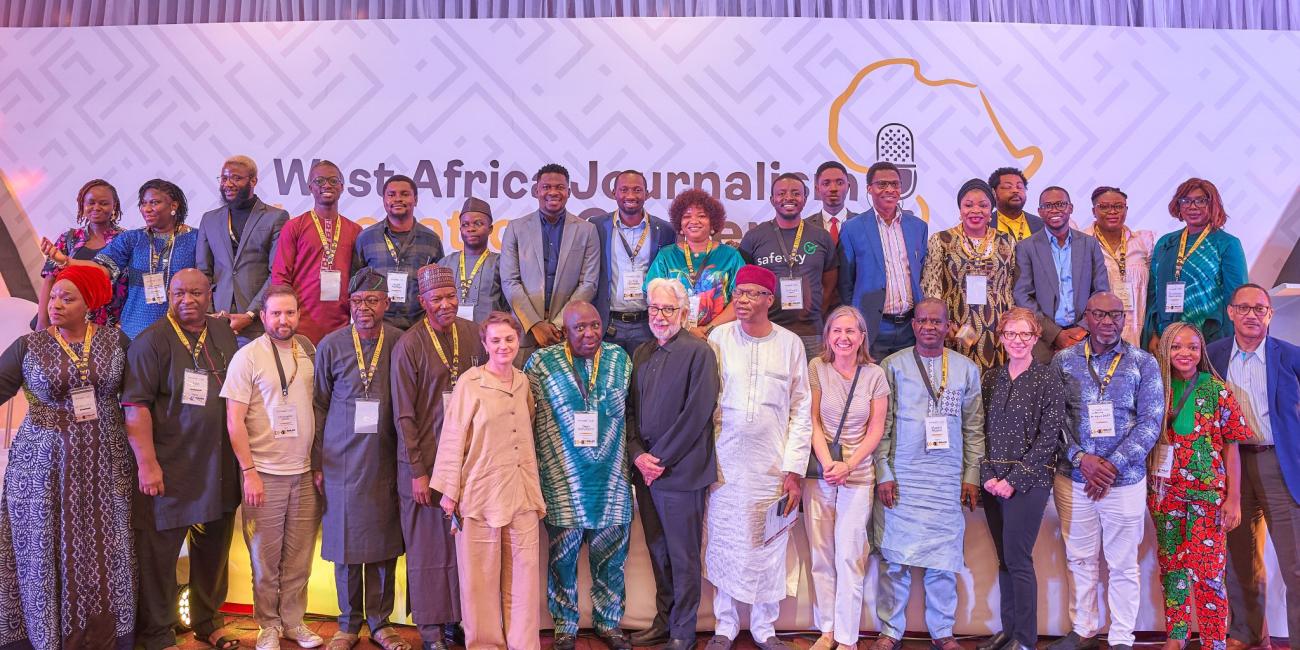Digital experts have tasked journalists and media workers with utilising artificial intelligence for efficiency in the newsroom rather than avoiding its adoption.
The ability to understand current events is where technology and journalism converge. It has become crucial for newsrooms to adopt a tech agenda, Richard Gevers, creator of Open Cities Lab, explained at the recently concluded West Africa Journalism Innovation Conference (WAJIC).
Over 400 media professionals, journalists, academics, politicians, and supporters of media rights from 11 different nations, including those from Europe and America, were in attendance at the first WAJIC last week in Abuja, the capital city of Nigeria.
Read also:Spotify’s personalized AI DJ, available to Nigerian premium users
Use of tech in journalism since time past
Joshua Olufemi, the founder of Dataphyte, a Pan-African data journalism company, said during a panel discussion on “Artificial Intelligence (AI), Digital Innovations, and the Future Journalism” that: “Everything we’ve done in the Journalism space, from print to broadcast, has been aided by technology, one way or another; why do we think that Artificial intelligence is any different?”
Olufemi continued, asking journalists and other media professionals not to oppose the development of artificial intelligence. “We should think how can we use AI to answer the journalism question, we need AI to do community journalism,” she said.
At the conference, several subject-matter experts urged attendees to focus on using technology to boost newsroom efficiency. For instance, Dataphyte has created Nubia, an AI-driven reporter that automatically generates data insights and development reports.
The data newsroom in Nigeria uses Nubia to translate real-time information from satellite and web camera footage, weather, and socioeconomic data into news stories, data insights, and advisories that can be sent directly to the newsroom and general public.
Deploying AI to combat AI
Since deep fakes have become more prevalent due to the spread of generative AI, media have had to combat disinformation. In addition to false information, there has been growing concern that AI may eventually replace journalists.
Zikoko Citizen’s Editor-in-Chief Muhammed Akinyemi makes the claim that if AI can take your job, you definitely shouldn’t have one to begin with.
According to Adesola Ikulajolu, Managing Editor of ROUNDCHECK, a Nigerian fact-checking website, “AI can be a threat to the information ecosystem in Africa, but we can also use it to the good use of our daily activities. If AI is capable of creating deep fakes, then it should also create tools for detecting such deep fakes.”
A tool driven by AI is now being developed by DUBAWA, Africa’s leading fact-checking newsroom, to assist in the fight against audio-based false news. A demonstration of several digital tools that journalists may use to fact-check assertions was shown during a session on Innovative Trends in Verification that was held concurrently with WAJIC. These tools included Lumen5 for video, the Verification Game by FactCheck-Hub, and the Dubawa Audio Platform.
“We are worried more about the risks we pose to ourselves than to machines.” Richard Gingras, Google Vice President of News, stated at a keynote talk at WAJIC. He added that “AI(s) are learning from the vast expression of humans. While technology opens up new opportunities, it is not always a good thing. The human element enters at this point.”
AI as a tool for journalism
The WAJIC delegates were instructed on the necessity of ensuring that the goal of journalism is what determines the usage of AI in their individual newsrooms and organisations in light of this human component. “How we create new technologies that will support our work is determined by the goal of journalism. According to Olufemi, journalists should constantly focus on the positive aspects of technology, particularly AI.
“The journalism community thinks about AI with fear,” claims Gingras. On the other side, it will increase productivity in tasks like creating limited tales to expand their audience and increase advertising income.
Because the ethics of reporting remain the same, always double-check your facts when using AI. Don’t let the machine handle everything, advises Dataphyte’s Ayantola Alayande, a digital and policy specialist.
Alayande also stressed the necessity of instructing journalists in ethical AI reporting and usage. He bemoaned the lack of funding, though, that prevents tech, like AI, from being used in African newsrooms.
